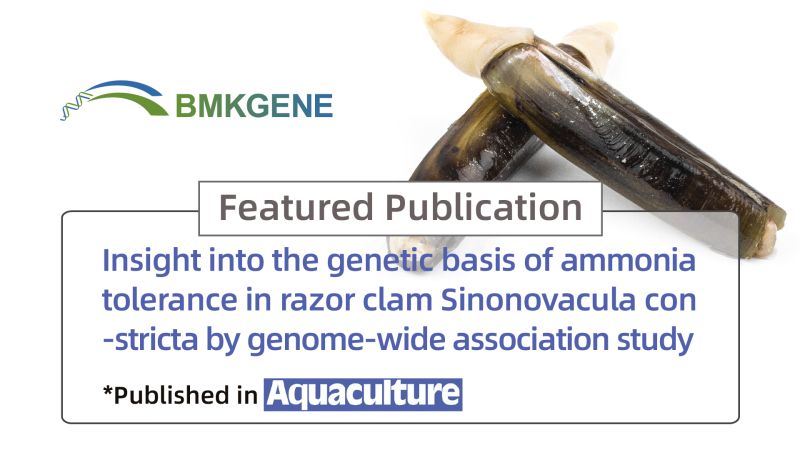Razor clams (Sinonovacula constricta) are ecologically and commercially important bivalves in China. However, environmental stressors like high concentrations of ammonia can hinder their growth and survival, leading to serious implications for both wild and farmed populations. The toxicity of ammonia can cause physiological changes and fatal consequences in razor clams.
To better understand the genetic basis of ammonia tolerance in razor clams, researchers conducted whole genome resequencing (WGS) and genome-wide association study (GWAS) using DNA samples collected from 142 razor clams exposed to varying levels of ammonia.
The findings were recently published in Aquacluture journal under the title “Insight into the genetic basis of ammonia tolerance in razor clam Sinonovacula constricta by genome-wide association study”. This research contributes to the understanding of the genetic basis of stress tolerance in marine organisms.
BMKGENE is honored for providing WGS and GWAS services for this research, and we are committed to helping more researchers expedite their studies in the future.
Click here to learn more about this article
Post time: Jul-18-2023


